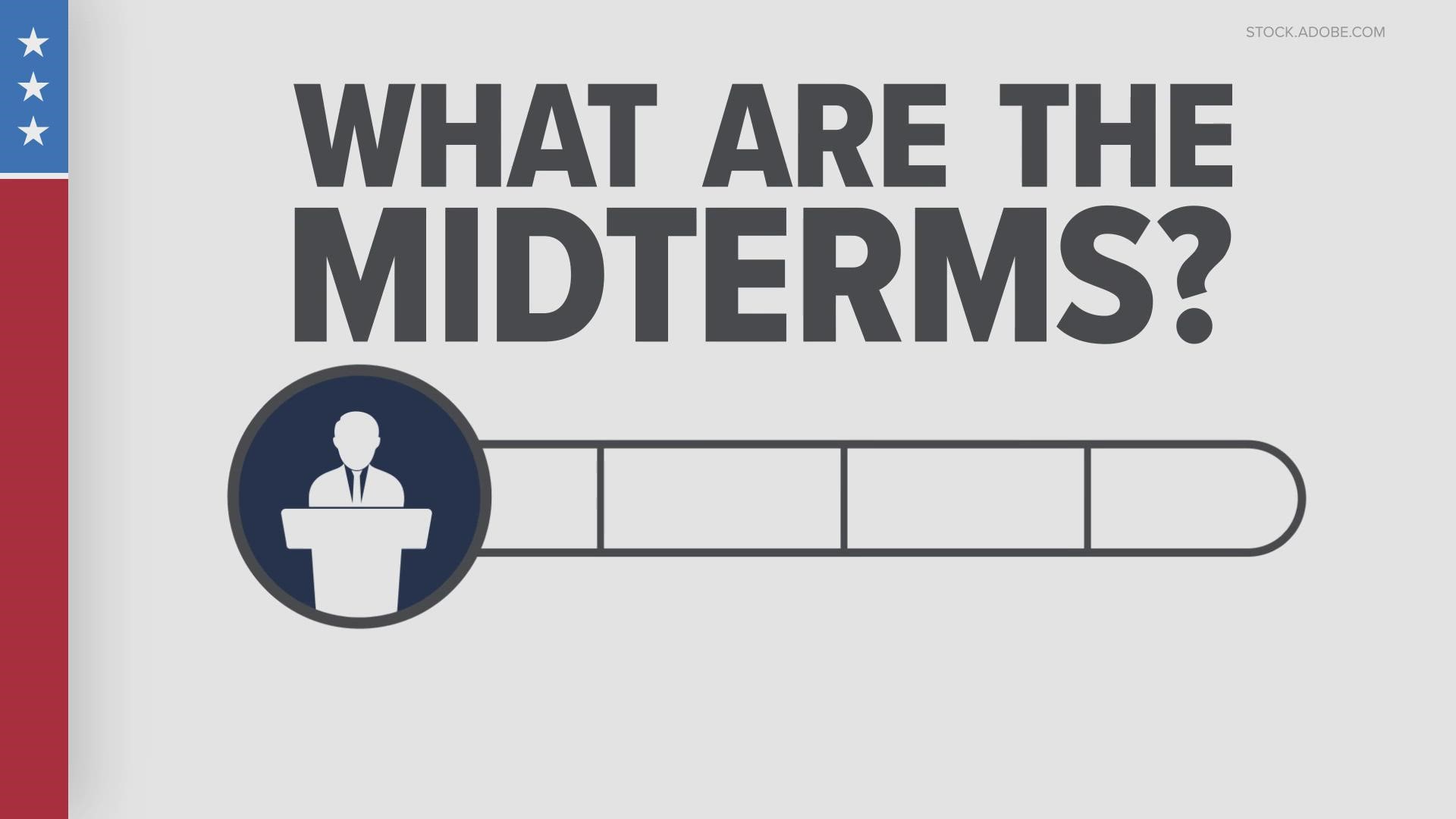WASHINGTON — All 435 House seats are up for election as part of the midterms, which will decide the balance of power for the remaining two years of President Joe Biden's first term in office.
There are also 35 Senate seats on the line and gubernatorial elections being held in 36 states and 3 territories.
Because of close contests and extended vote counting, it could take days or weeks before the final outcome is known in several key races.
Operatives in both parties expect the GOP to win the House majority, which would require a net gain of five seats. But with a big wave, the GOP could win 25 new seats or more.
Here is a breakdown of votes across the country and an updated balance of power for the U.S. House.
Bookmark this page and return for real-time local and national election results as they come in.
Below is an interactive map where you can see county-by-county results for all of the U.S. House races across the country.
Who would be Speaker if Republicans win the House?
House Minority Leader Kevin McCarthy is expected to be the favorite to be the next Speaker of the House if Republicans win control of the chamber.
What are midterm elections?
Midterm elections take place two years after a presidential election, halfway through a president's four-year term.
The midterms are often considered a referendum on how Americans are feeling about the first half of a president's term.
What are we voting for today?
Voters aren't electing a new president, but there are federal, state and local seats contested in midterm elections.
All 435 seats in the House of Representatives are contested in the midterm elections. Representatives serve two-year terms and must run for reelection each election cycle to keep their seat. Unless you live in Washington D.C. or a U.S. territory, you will see a race for the House of Representatives on your ballot.
In 2022, 35 of the 100 seats in the Senate will be elected. Senators serve six-year terms and their election years are staggered, so every two years one third of the Senate is either elected or reelected.
When will we know election results?
While some results will begin to come out Tuesday night as polls close, we may not know the election results for some key races for days - or even possibly weeks.
While most states require mail ballots to be received on or before Election Day, 19 states provide a grace period as long as ballots were sent through the mail by Election Day. Such ballots in California can be received up to seven days later.
Voters may not know the outcome of a close race for several days if a significant number of those ballots arrive at local election offices after Election Day.
This also can change results over time. If Democratic voters dominate mail voting while Republican voters largely cast ballots in person, this can mean that early results heavily favor a Republican candidate who then sees that lead slip away as the late-arriving mail ballots are counted.

